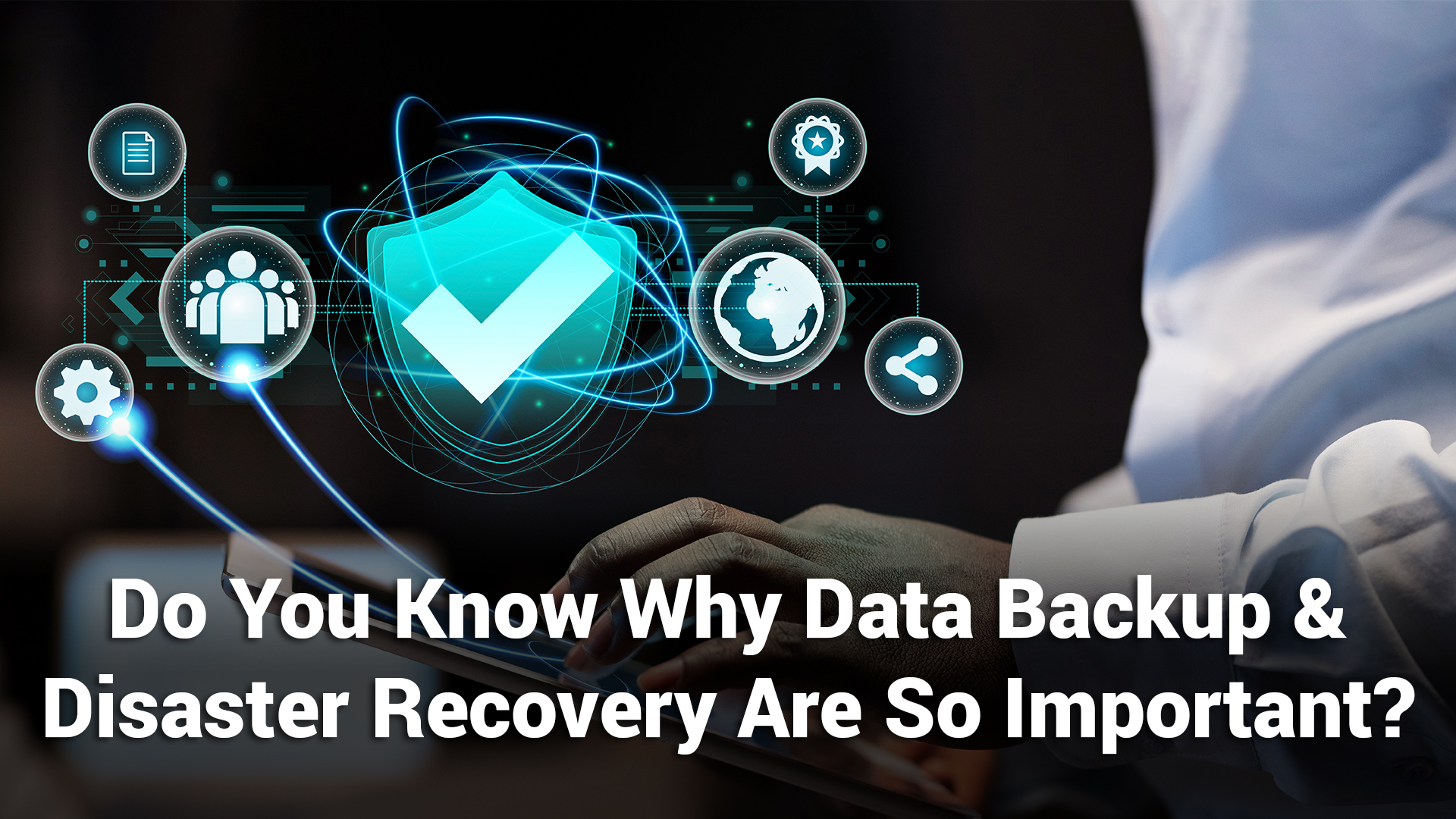Are you ready for a disaster? Planning ahead is a critical part of your continuity strategy.
Business emergencies can strike at any time whether it’s a malware attack, natural disaster, or a pandemic.
It’s vital to have a plan in place to make sure your business can continue to accomplish work, maintain compliance, and keep unproductive downtime to a minimum.
BC Networks can help you develop and maintain a plan to protect your data, your productivity, and your business. Set a meeting with our team to get started.
The Necessity Of A Disaster Recovery Plan
Without comprehensive disaster recovery planning, you’re left vulnerable to any and all emergency situations, whether it’s a major meteorological event like a hurricane, common power outages, or the result of malicious or accidental employee actions. Consequences include:
As with most initiatives, the first step is to create a workable plan. Your business’ plan needs to be carefully constructed and written down for reference and review.
Remember, many companies are required to maintain an Emergency Action Plan by OSHA so this can be considered part of that process.
Top 4 Priorities In Your IT Disaster Recovery Plan
Your plan should put forth policies and procedures regarding employee safety, disaster recovery, and contingencies that can be activated if your business’ facilities are damaged.
The four main priorities of an effective IT Disaster Recovery Plan are:
Protecting Data
Whether it’s your on-site server, in the cloud, or hard copy duplicates stored in the filing cabinets, you need to make sure your business’ data is protected and securely backed up.
Protecting Property
Natural disasters are a legitimate threat to businesses in Florida. Your plan needs to consider how best to protect your property during a disaster event.
Maintaining Continuity
Whether your phone lines go down, or a pandemic keeps your team from coming into the office, you can’t let disaster-related obstacles keep your business from working.
Mitigating Employee Risks
Cybersecurity gimmicks—such as “set it and forget it” firewalls and antivirus software—fail to account for how important the user is:
Accidental Deletion: According to the Shred It Protection Report, 31% of small business owners report that human error or accidental loss by a staff member led to a data breach.
Malicious Insider Threats: Employees acting in bad faith can cause extensive damage as well. According to the Insider Threat Report, of 874 reported incidents, 191 were caused by malicious employees.
What Should Your IT Disaster Recovery Plan Include?
Protection Of Data
- Make sure you have a backup of information on important business contacts.
- Backup documents that are not easy to reproduce or re-acquire in the event of water damage—insurance and legal contracts, tax files, etc.
- Keep as much of your documentation as possible in waterproof containers.
- The backup solution you use should provide both local onsite backup for quick recovery in instances of data loss, as well as offsite cloud-based backup for when your business is hit with a critical disaster.
- Furthermore, you can’t just assume that your backups will just work when needed. You need to regularly test your backups to verify their effectiveness in the event that something goes wrong with your onsite data.
Conditional Access
The fact is that unnecessary access to sensitive data and misuse of privilege is often one of the most common ways for employees to cause damage to a business.
Cybercriminals can trick a user with administrative privileges to download and run malware, or by elevating privileges on a compromised non-admin account, hackers regularly make use of this highly common unsafe business practice. Furthermore, malicious employees can abuse their privilege to do damage directly.
- Limiting administrative privileges to those who actually require it. The fact is that the common business user should not require administrative privileges to do their job—whether that’s for installing software, printing, using common programs, etc.
- Protect administrative accounts. Once you’ve limited privileges to only a few members of the organization, make sure their accounts have the right protections in place.
- You need complex, long passwords, multi-factor authentication, alerts for unsuccessful log-ins, and limit administrative actions to devices that are air-gapped from unnecessary aspects of your network.
Identification Of Potential Risks
By understanding the risks posed to your business—electrical failure, region-specific weather, human error, etc.—you can more effectively plan to avoid them. Make sure to review your local area on Google Maps to identify nearby risks, including:
- Coastlines
- Railroads
- Easily flooded areas
Definition Of Procedures And Assigning Roles
Determine the critical staff that will need to be on-site or on-call during an emergency. It’s important to define who will be needed to keep your business running, and who should be responsible for any emergency response tasks. Remember that safety comes first and that your plan must focus on keeping your employees out of danger.
Coordination
A comprehensive plan should prepare your business to coordinate with others during an emergency. How are nearby businesses going to operate? How will police, fire, and medical response be affected? These questions are best answered before the storm hits.
Briefing Your Employees
Your plan should not be written and then left on a shelf. Every employee should be familiar with your procedures and plans to handle any future emergencies. Hold a meeting where your plan is reviewed, roles are assigned, and your staff can ask questions.
Review And Update
Changes in your business or the community in which you operate can have a major effect on your disaster plan. Be sure to review your plan at least once a year and make any necessary revisions to keep it current and effective.
Data Continuity Is Your #1 Priority
Data loss can happen without notice.
You could come into work and find that flooding has fried your systems. Or you could download the wrong attachment from a seemingly safe email, and find that your data is being held at ransom. Or you may just accidentally delete it—it happens to all of us.
Why Do You Need A Comprehensive Data Backup Plan?
The unfortunate reality is that without effective data backup capabilities, your business will suffer devastating consequences, including:
- Data loss with no chance of recovery, resulting in wasted work hours and employee wages.
- Data leaks due to malware attacks and phishing scams, which will threaten the privacy of your business’ data, as well as that of your clients.
- Reputational damage, resulting in your clients no longer trusting the security of your business dealings.
5 Reasons To Verify Your Data Backup Capabilities
Natural Disasters
The fact is that mother nature doesn’t care if you backed up your work or not. A server room flood, vital infrastructure being knocked out by winds and even worse during a major weather event can quickly erase both local and offsite data reserves if your backups aren’t far enough away from your offices.
Cybercrime
Data loss is often the result of poor digital security; without the right defenses, cybercriminals can easily infect an IT system with ransomware or other types of malware and compromise company data.
In a ransomware attack, a hacker gains access to an organization’s computer systems.
Typically, an unsuspecting employee clicks on an emailed attachment that appears to be a bill or other official document. In actuality, the attachment installs malware onto the computer system. Once embedded, the malware allows a hacker to access critical systems, often giving complete remote control data and access.
What’s more, in recent years, more advanced forms of ransomware have demonstrated the capability to encrypt backups as well. That means that offsite backups that are connected to onsite systems are just as at risk of data loss as those stored locally.
That’s why you should make an investment in a comprehensive backup data recovery solution (which includes digital air-gapped capabilities) so that you can restore your data at a moment’s notice when necessary.
Maintaining Compliance
When it comes to modern compliance requirements, redundant data backups are critical. You’ll want to make sure you know what’s required of your industry’s compliance regulations, and make sure you have backup methods in place to meet those. The default backup capabilities offered by many applications may not suffice for the most stringent regulations.
Human Error
A majority of cybersecurity services offered today include the best in vital technologies, from firewalls to anti-malware to data encryption and more. However, as important as this technology is, on its own, it simply isn’t enough. The key to truly comprehensive cybersecurity (and therefore, data protection and data backup) is simple, yet often overlooked: the user.
Much of data protection is dependent on the user, and as such it’s vital that you properly educate your employees in safe conduct. The more your workforce knows about the security measures you have in place, the more confidently they can use the technology in a secure manner.
Human error can be detrimental to data integrity. Without a viable backup, all it takes is one accidental click to delete a file, or one spilled coffee to fry a local hard drive.
Data Retention Contingencies
At the rate that technology evolves (and how quickly your standard operations and concerned policies are required to keep up with it), it’s no surprise that some businesses find it difficult to keep up with.
When policy development falls behind the pace of adopted technologies, it can often lead to gaps, which can affect data retention. The fact is that many applications only have limited backup and retention policies, equipped to handle situational data loss—not comprehensive.
What To Look For In A Data Backup Solution
The best way to enhance your data backup capabilities is to work with a capable IT company like BC Networks.
Be sure to work with one that can fulfill the following requirements…
Comprehensive Backups
The backup solution should provide both local onsite backup for quick recovery in instances of data loss, as well as an offsite cloud-based backup for when your business is hit with a critical disaster.
Furthermore, these offsite backups need to be protected by a digital air gap, ensuring they are not at risk of encryption in the event of a ransomware attack.
Regularly Testing
Your IT company shouldn’t expect you to assume that your backups will just work when needed. They should regularly test your backups to verify their effectiveness in the event that something goes wrong with your onsite data.
Convenient Restoration
Don’t settle for clumsy, all-or-nothing backups. You should be able to choose a point in time to restore in the event that the data has been deleted, corrupted, or there has been a malicious intrusion.
Backup Best Practices
Industry leaders agree that backups should follow the “3-2-1” rule; that is, you should have 3 copies of your data (your production data and 2 backup copies) on two different media (disk and tape) with one copy off-site for disaster recovery.
The key is in finding the right third-party backup solution to keep your data protected against hardware failure, ransomware, human error, and whatever else may occur.
Get Expert Data Backup Support From BC Networks
Data continuity is all about prevention. No matter what you do, you cannot start focusing on data backup after your systems have gone down.
At that point, it is too late. Take the necessary steps now to protect your data down the road.
If you are unsure about implementing a reliable and comprehensive data backup, then you need to find an IT partner that can help you out—allow BC Networks to assist.
What’s The Bottom Line Of IT Disaster Recovery?
The question is: will you wait until after you get hit with a disaster to start thinking about how you’ll recover? Or will you do what’s right for your business, and start planning for the worst-case scenario today?
We know that you’d like to keep your business operating no matter what crisis the nation faces. With the right remote work capabilities, you can keep your staff productive and healthy. If you need help, get in touch with the BC Networks team.




